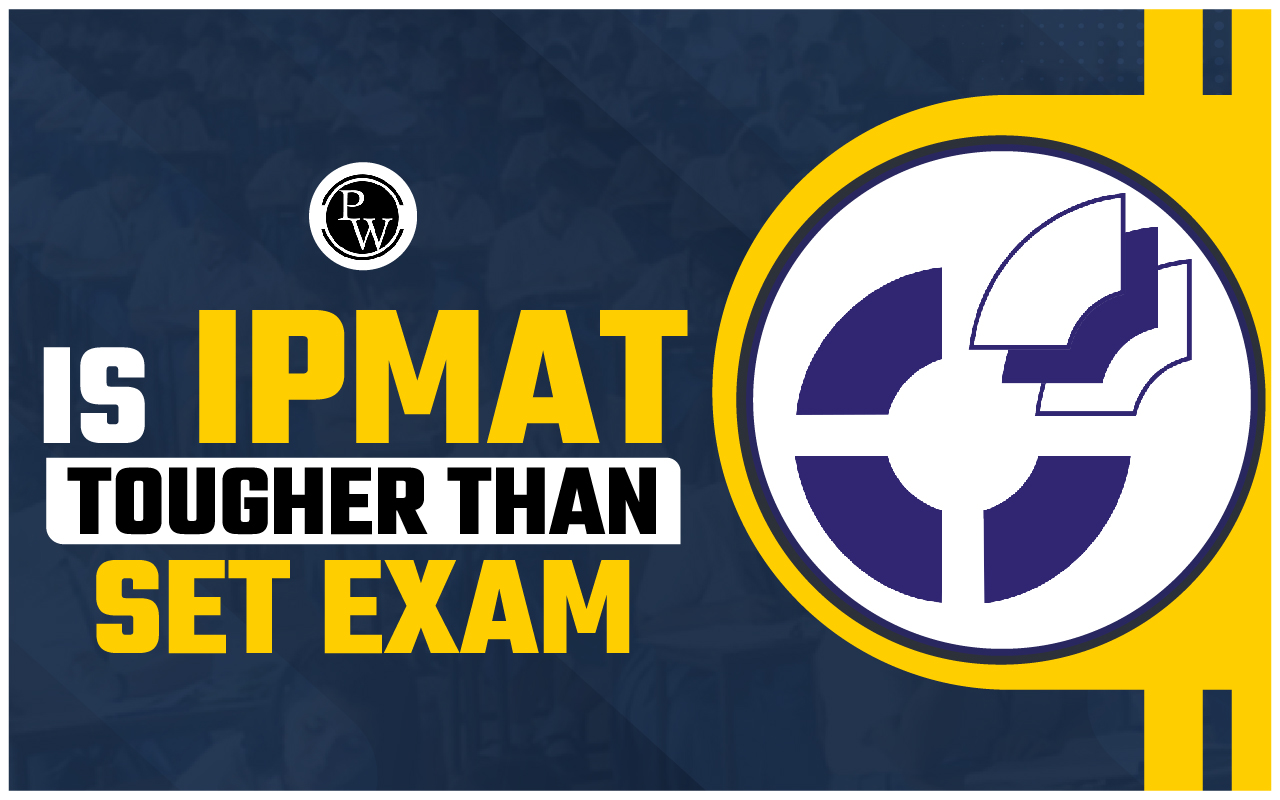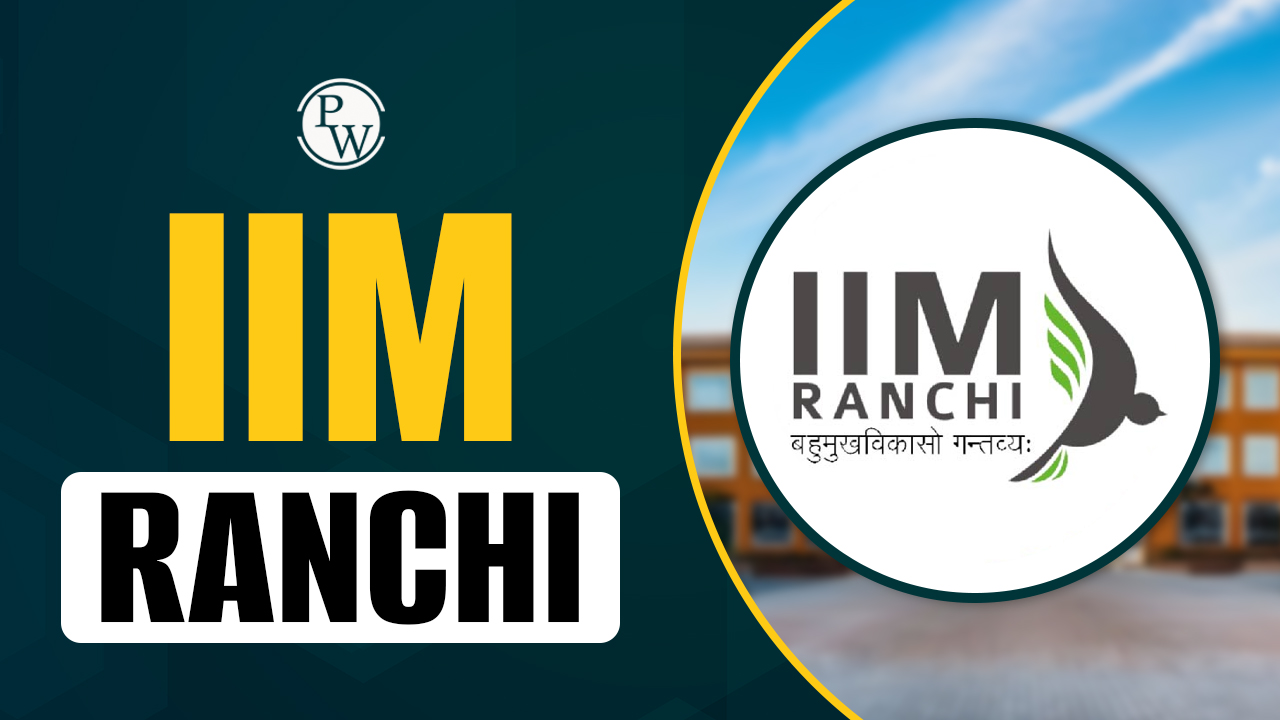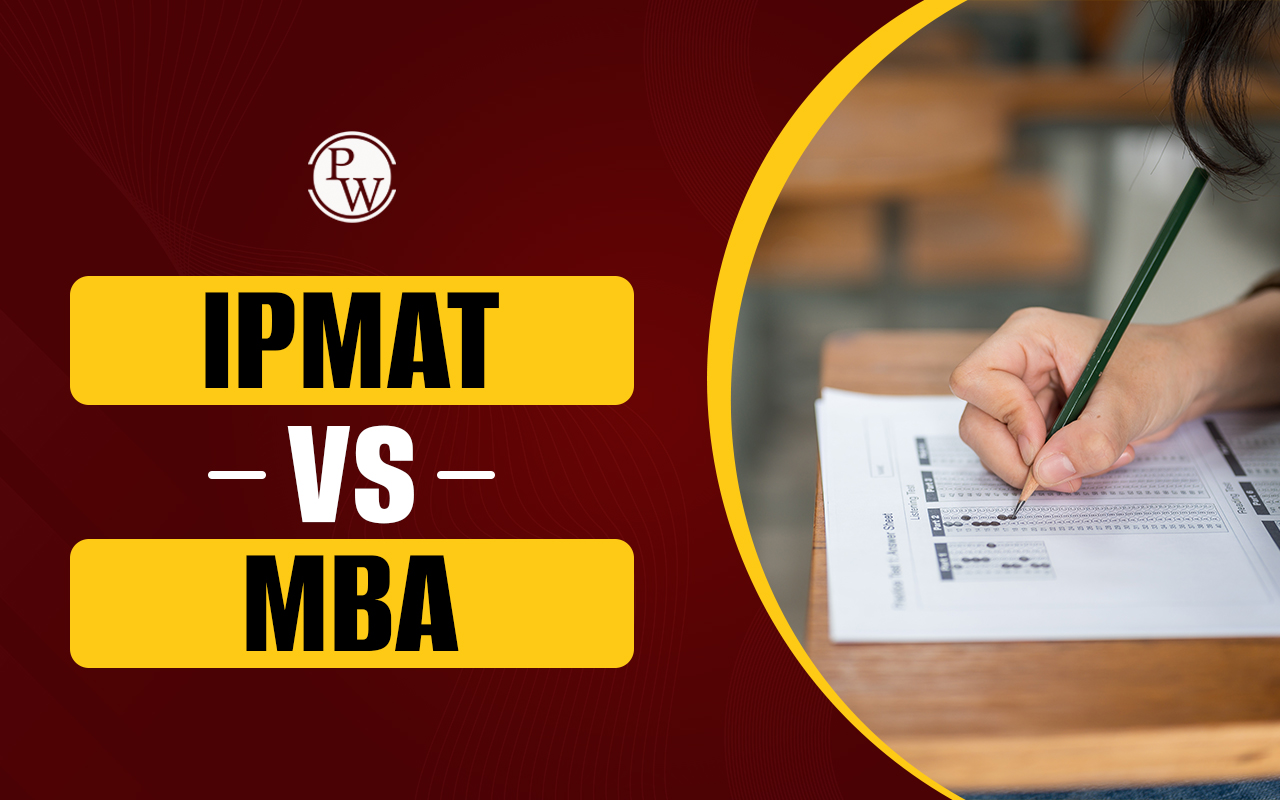
BBA vs BBS vs BBM: In India, there are three popular undergraduate business degree programs: the Bachelor of Business Administration (BBA) , Bachelor of Business Studies (BBS), and Bachelor of Business Management (BBM). Although these programs all focus on business and management education, they have some important differences in what they teach, the areas they specialize in, and the job opportunities they offer.
BBA program gives students a wide-ranging understanding of business administration. It covers key areas such as finance , marketing , human resources , and operations. On the other hand, the BBM program focuses more on teaching managerial skills and how to make important decisions in business settings.- Meanwhile, the BBS degree takes a more analytical and logical approach. It aims to develop students' critical thinking skills specifically for managing businesses.
BBA vs BBS vs BBM
BBA, BBS, and BBM are all undergraduate management courses that last three years and cover business basics, but their main focus differs a bit. BBA teaches about business administration, giving students practical knowledge for managing companies, while BBS puts emphasis on real-world industry situations and practical exposure. BBM is more about learning how to take smart management decisions and build leadership skills, focusing more on theoretical and analytical knowledge. All three help build a foundation for an MBA or other business careers.
BBA vs BBS vs BBM Overview
When comparing BBA, BBS, and BBM, it's important to know that these degree programs have similarities in their main subjects, concentrating on business and management studies.- The Bachelor of Business Administration (BBA) program covers various business topics like marketing, finance, accounting, and human resources. It's designed to give students a solid foundation for working in the business field.
- On the other hand, the Bachelor of Business Studies (BBS) looks at business and management education from a broader perspective, rather than focusing on specific areas.
- Similarly, the Bachelor of Business Management (BBM) program focuses on building students' skills in management and decision-making.
| BBA vs BBS vs BBM Highlights | |||
| Features | BBA | BBS | BBM |
| Full form | Bachelor in Business Administration | Bachelor in Business Studies | Bachelor in Business Management |
| Level | Undergraduate | Undergraduate | Undergraduate |
| Focus Area | Administration and Functioning | Realistic Industry-based Focus | Managerial Decisions and Overall Management |
| Duration | 3 years | 3 years | 3 years |
| Eligibility | Candidate must have cleared Class 12 or equivalent | Candidate must have cleared Class 12 or equivalent | Candidate must have cleared Class 12 or equivalent |
| Top Colleges |
|
|
|
| Average Course Fee (in INR) | INR 50,000 to INR 3 Lakh | INR 50,000 to INR 1 Lakh | INR 1 Lakh to INR 5 Lakh |
BBA vs BBS
Both BBA and BBS deal with business studies and offer similar subjects, but BBA gives more practical exposure to how businesses work, preparing students for hands-on jobs in companies. BBS, on the other hand, is slightly more focused on connecting academics with the real industry, using practical projects and case studies to give students better real-world understanding.
BBA vs BBM
BBA and BBM are very similar, but BBA focuses more on the general functioning and administration of a business, while BBM emphasises training students in managerial roles and leadership. If someone wants to learn how to run and manage a business organisation from the ground up, BBA is ideal; for those interested in building strong management decision skills, BBM is better.
BBS vs BBM
BBS and BBM both teach management, but BBS focuses more on giving students an industry-oriented and practical background, while BBM sharpens managerial and leadership skills with a more theoretical approach. In short, BBS helps students understand how businesses solve problems, and BBM prepares them to take managerial decisions within companies.
BBA vs BBS vs BBM Eligibility Criteria
The eligibility requirements for Bachelor of Business Administration (BBA), Bachelor of Business Studies (BBS), and Bachelor of Business Management (BBM) are quite similar, but they can vary a bit depending on the college or university and the specific program. Here's a breakdown of what's generally needed for each:Note: All three courses, BBA vs BBS vs BBM, typically span 3 years, divided into 6 semesters.
Bachelor of Business Administration (BBA): To get into a BBA program, usually, you need to have finished 12th grade from a recognized board or university. Typically, students should have passed their 12th-grade exams with around 45% to 50% overall. Some colleges might also want students to have a specific percentage in business or commerce subjects. Bachelor of Business Studies (BBS): The criteria for BBS are much like those for BBA. You usually need to have completed your 12th grade from a recognized board or university with about 45% to 50% overall. Some colleges might also require a certain percentage in business or commerce subjects. Bachelor of Business Management (BBM): BBM requirements are also similar to those for BBA and BBS. You generally need to have finished your 12th grade from a recognized board or university with approximately 45% to 50% overall. Some colleges might also ask for a specific percentage in business or commerce subjects. Additional Requirements: Depending on the college, there might be some extra criteria for getting into these programs. These could include:- Entrance Exams: Some colleges might ask you to take an entrance exam, like the Under Graduate Aptitude Test (UGAT), to see if you're a good fit for the course.
- Interviews : Some colleges might want to interview you to gauge your communication and interpersonal skills.
- Work Experience: Some colleges might prefer students who have some relevant work experience in the business or management field.
BBA vs BBS vs BBM Entrance Exams
Here's a breakdown comparing the entrance exams for BBA, BBS, and BBM degree programs:BBA Entrance Exams
- CAT (Common Admission Test): Conducted by Indian Institutes of Management (IIMs).
- MAT (Management Aptitude Test): Conducted by the All India Management Association (AIMA).
- SNAP (Symbiosis National Aptitude Test): Conducted by Symbiosis International University.
- NMAT by GMAC (NMAT): Conducted by the Graduate Management Admission Council (GMAC).
- CMAT (Common Management Admission Test): Conducted by the National Testing Agency (NTA).
- State-level exams like MH-CET, KMAT, TANCET, etc.
BBS Entrance Exams
- CUET (Common University Entrance Test): Conducted by the National Testing Agency (NTA) for central universities.
- State-level exams like WBJEE, UPCET, etc.
- Some universities may have their own entrance tests.
BBM Entrance Exams
- Similar to BBA entrance exams, including MAT, SNAP, NMAT, and CMAT.
- State-level exams like MH-CET, KMAT, TANCET, etc.
- Some universities may have their own entrance tests.
| BBA vs BBS vs BBM: Entrance Exams | ||
| Program | Common Entrance Exams | Availability |
| BBA | CAT, MAT, SNAP, NMAT, CMAT, State-level exams | Nationwide |
| BBS | CUET, State-level exams, Some university-specific exams | Limited |
| BBM | MAT, SNAP, NMAT, CMAT, State-level exams, Some university-specific exams | Nationwide / Limited |
BBA vs BBM vs BMS Similarities
Here's a the key similarities between BBA, BBM, and BMS degrees:- All three are 3-year undergraduate management programs suitable for students who have finished 10+2 or intermediate education.
- The course content and curriculum for BBA, BBM, and BMS have significant overlap, focusing on core business and management subjects.
- The average course fees for these programs fall within a similar range of ₹1-5 lakhs.
- Graduates of these programs typically start with comparable salaries, ranging from ₹3-7 lakhs per annum.
- Each program offers a strong foundation for students interested in pursuing further management education, such as an MBA or PGDM after graduation.
- The eligibility criteria, duration, and academic level (undergraduate) are the same across all three programs.
| BBA vs BBM vs BMS: Similarities | |||
| Aspect | BBA | BBM | BMS |
| Duration | 3 years | 3 years | 3 years |
| Eligibility | Completion of 10+2 or equivalent | Completion of 10+2 or equivalent | Completion of 10+2 or equivalent |
| Course Content and Curriculum | Significant overlap, covering core business and management subjects | Significant overlap, covering core business and management subjects | Significant overlap, covering core business and management subjects |
| Average Course Fees (in INR) | ₹1-5 lakhs | ₹1-5 lakhs | ₹1-5 lakhs |
| Average Starting Salaries (per annum, in INR) | ₹3-7 lakhs | ₹3-7 lakhs | ₹3-7 lakhs |
| Further Management Education Opportunities | Provides foundation for pursuing MBA or PGDM | Provides foundation for pursuing MBA or PGDM | Provides foundation for pursuing MBA or PGDM |
| Academic Level | Undergraduate | Undergraduate | Undergraduate |
BBA vs BBM vs BMS Differences
BBA is a job-focused course that teaches the essential parts of running a business. It covers things like marketing, finance, operations, and managing people. BBA graduates usually start with higher salaries compared to BMS.- BBM is similar to BBA, but it focuses more on teaching how to manage people and make smart decisions in business. It also helps students develop their thinking and problem-solving skills.
| BBA vs BBM vs BMS: Differences | |||
| Aspect | BBA | BBM | BBS |
| Full Name | Bachelor of Business Administration | Bachelor of Business Management | Bachelor of Management Studies |
| Focus Area | Overall administration and management of businesses. | Taking key managerial decisions and personnel management. | Development of logical and analytical skills concerned with business management. |
| Duration | 3 years divided into 6 semesters | 3 years divided into 6 semesters | 3 years divided into 6 semesters |
| Eligibility | 10 + 2 | 10 + 2 | 10 + 2 |
| Specializations | Accounting, Entrepreneurship, Finance, Real Estate, Human Resource Management, International Business, Information technology, etc. | Finance, Operations Management, Management Information Systems, etc. | Marketing, Finance, HRM, Management of Services, Management of global Business & Tourism Management, etc. |
| Entrance Exams | NPAT, UGAT | IPMAT, DUJAT | SET, MUCMET |
| Top Colleges | University of Delhi, SSCBS Delhi, GGSIPU Delhi | IIM Indore, NMIMS Mumbai, NMIMS Bangalore | SIU Pune, Nirma University Ahmedabad, St. Xaviers College Mumbai |
What is BBA?
BBA is a 3-year full-time undergraduate degree program that covers a broad range of business subjects including finance, marketing, human resource management, operations management, entrepreneurship, and organizational behavior.Specializations in BBA
Some of the most popular BBA specializations include:- BBA in Business Administration
- BBA in International Business
- BBA in Computer Application
- BBA in Finance
- BBA in Entrepreneurship
- BBA in Hospitality
- BBA in Human Resources
Benefits of BBA
Here are the main benefits of getting a Bachelor of Business Administration (BBA) degree:- Versatile Career Opportunities
- Practical Business Knowledge
- Strong Foundation for MBA
- Early Career Start
- Enhanced Employability
- Entrepreneurship Opportunities
- Networking Opportunities
What is a BBM course?
BBM means Bachelor of Business Management. It helps people become good managers by teaching them about different subjects related to management. These subjects give a complete understanding of how to handle managerial problems and use this knowledge in real life. BBM offers specializations like Finance, Operations Management, and Management Information Systems.What is BMS?
BMS stands for Bachelor of Management Studies. This course focuses on teaching analytical and logical skills to students. It helps them develop these skills, which are important for various careers. Students can choose to specialize in areas like Marketing, Finance, HRM, Management of Services, Management of Global Business, and Tourism Management.Benefits of BMS
Like BBA graduates, those with a BMS degree have many job opportunities in various fields. BMS specializations cover a wide range of areas, meeting the growing demand for management professionals in different sectors. Here are some benefits of pursuing a BMS:- BMS provides a solid foundation in management studies, fostering analytical and logical thinking about business matters.
- The versatility of BMS courses allows students to learn managerial concepts across different industries and domains.
- BMS programs are often more cost-effective compared to similar BBA courses, reducing financial burdens for students.
- Pursuing an MBA after completing a BMS course opens up extensive employment opportunities. Graduates are often sought after for their technical management skills, leading to potentially higher salaries compared to other MBA graduates.
BBA or BBM or BMS; Which is better?
BBA is more focused on preparing students for jobs compared to the BMS course. Both are management courses, but BMS emphasizes theoretical and logical studies while BBA focuses on core studies. Despite the different names, BBA (Bachelor of Business Administration) and BBM (Bachelor of Business Management) are essentially the same three-year technical courses with identical curriculum and core content. It's difficult to determine which is better. However, if someone prefers theory-based learning, they can opt for a BMS course. Otherwise, BBA or BBM might be slightly better for those seeking job-oriented courses.BBA or BBM : which is better for MBA?
According to statistics, Bachelor of Business Administration (BBA) might be slightly better than Bachelor of Business Management (BBM) for preparing for the Common Admission Test (CAT) for MBA. BBM focuses more on theory about managing, while BBA is more about preparing for roles where you supervise or manage in the business world.BBA, BBM and BMS Salary in India
Here is the required table which highlights the BBA, BBM and BMS Salary in India:| Course name | BBA | BBM | BMS |
| Average starting salary (approx.) | Rs 3 to 7 LPA | Rs 3.5 to 6 LPA | Rs 3 to 5 LPA |
Which has more scope BBA or BBM?
Students with a BBA degree often have the capability to start and efficiently manage their own businesses. BBA programs typically emphasize entrepreneurship and provide students with the necessary skills to succeed as business owners. On the other hand, BBM programs primarily focus on the management sector. While graduates with a BBM degree are equipped to effectively manage established businesses, they may not possess the same emphasis on entrepreneurship skills as BBA graduates do. Therefore, they might face challenges when it comes to starting and running their own businesses. Strengthen your chances to excel in IPMAT with thorough preparation offered by PW IPMAT Online Coaching . Join PW IPMAT Coaching Class to access regular live lectures, 24/7 doubt resolution, recorded video lessons, DPPs, updated study materials, and mock tests with performance analysis.BBA vs BBS vs BBM FAQs
What are the main differences between BBA, BBS, and BBM?
What is the duration of these courses?
What are the eligibility criteria for BBA, BBS, and BBM?
How much does it cost to pursue these courses?
What are the starting salaries for graduates of these courses?










